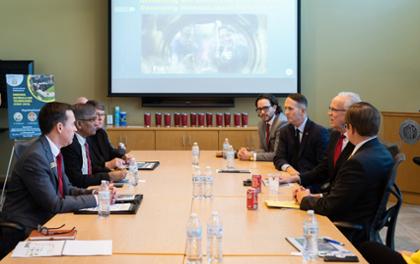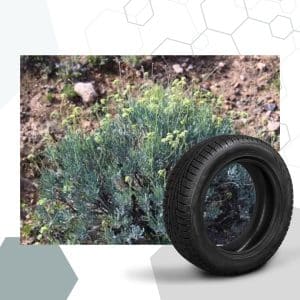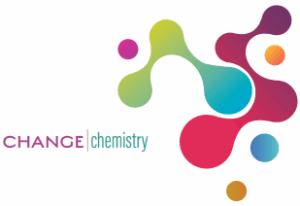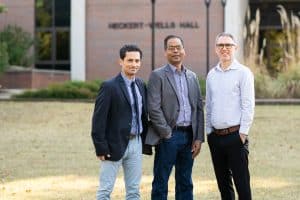A program that still flies under the radar locally has attracted national attention, bringing to the Pittsburg State University campus this month a U.S. congressman, the head of the National Science Foundation, and a top state official.
For U.S. Sen. Jerry Moran (Kan.), the visit to the Tyler Research Center — home to the National Institute for Materials Advancement — was the second in recent months.
He came, he said, because he sees the impact the center can have on not just the state, but the region and the nation.
This time, he invited special guests — National Science Foundation Director Sethuraman Panchanathan and Kansas Lt. Gov. David Toland — both of whom agreed after their tour and their meeting with university officials: research here could lead to significant manufacturing and employment opportunities.
“There is so much potential here,” Panchanathan said. “The kind of work that is happening here at Pitt State should happen across the U.S. The ideas that are generated here, they can be the basis for us to become stronger, more competitive, and prosperous as a nation.”
At the heart of the research are polymers — materials that are made by chemically linking many small molecules named monomers. Together, they form long chains that are used in many products and goods used in everyday life.
The research is being conducted by internationally recognized scientists who work with faculty and students from the College of Technology and the Polymer Chemistry Initiative, along with state and federal agencies, to find ways to use sustainable materials to create products that can be commercialized.
They’re creating batteries from coffee grounds, golf balls from soybean waste, a non-flammable foam made from castor oil for use in commercial and residential construction, and alpine skis out of algae. (Yes, algae.)
Next on the horizon: semiconductors — or “chips” — at a proposed facility called the National Center for Semiconductor Research and Testing right here in Pittsburg. Semiconductors can be found in thousands of products, from computers to medical equipment to gaming hardware to smartphones.
Moran, the lead Republican on the Senate Appropriations Subcommittee on Commerce, Justice, and Science, funds and conducts oversight of the National Science Foundation. He has been an advocate for several million dollars in federal grants in recent years that helped NIMA launch and move forward.
“It is important to me that Dr. Panchanathan sees what’s going on at Pittsburg State University in regard to polymer research, in regard to plastics, and their desire to expand that into the world of chips and chip research,” Moran said. “The opportunity exists for there to be further financial support for the programs here at Pittsburg State.”
Toland said the goals of NIMA align closely with other economic development opportunities that Gov. Laura Kelly’s administration has brought to Kansas, including a $4 billion electric vehicle battery plant in DeSoto.
“This is the kind of place where there is tremendous potential, talent, and ideas,” said Panchanathan at the conclusion of his visit. “It is important for us to provide the opportunities for every bit of talent to express itself in its fullest form. That’s how you build a very rich and robust economic development ecosystem.”




